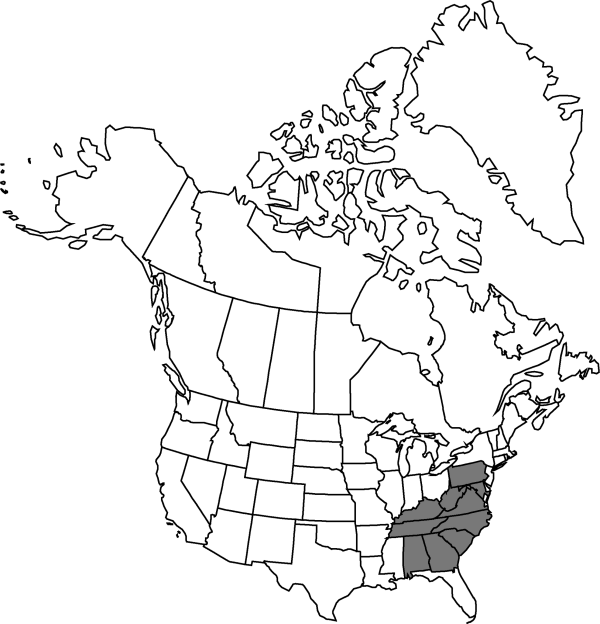Difference between revisions of "Phemeranthus teretifolius"
Specchio Sci. 1: 86. 1814.
FNA>Volume Importer |
FNA>Volume Importer |
||
| Line 15: | Line 15: | ||
|name=Claytonia teretifolia | |name=Claytonia teretifolia | ||
|authority=(Pursh) Kuntze | |authority=(Pursh) Kuntze | ||
| − | }}{{Treatment/ID/Synonym | + | }} {{Treatment/ID/Synonym |
|name=Talinum ciliatum | |name=Talinum ciliatum | ||
|authority=Lindley | |authority=Lindley | ||
| Line 33: | Line 33: | ||
|elevation=200-1000 m | |elevation=200-1000 m | ||
|distribution=Ala.;Ga.;Ky.;Md.;N.C.;Pa.;S.C.;Tenn.;Va.;W.Va. | |distribution=Ala.;Ga.;Ky.;Md.;N.C.;Pa.;S.C.;Tenn.;Va.;W.Va. | ||
| − | |discussion=<p>Phemeranthus teretifolius is an allopolyploid derived from P. parviflorus and P. mengesii, both of which it evidently outcompetes within its southern Appalachian range (M. E. B. Carter and W. H. Murdy 1985; W. H. Murdy and M. E. B. Carter 1985, 2001).</p> | + | |discussion=<p><i>Phemeranthus teretifolius</i> is an allopolyploid derived from <i>P. parviflorus</i> and <i>P. mengesii</i>, both of which it evidently outcompetes within its southern Appalachian range (M. E. B. Carter and W. H. Murdy 1985; W. H. Murdy and M. E. B. Carter 1985, 2001).</p> |
|tables= | |tables= | ||
|references= | |references= | ||
| Line 57: | Line 57: | ||
|publication year=1814 | |publication year=1814 | ||
|special status= | |special status= | ||
| − | |source xml=https://jpend@bitbucket.org/aafc-mbb/fna-data-curation.git/src/ | + | |source xml=https://jpend@bitbucket.org/aafc-mbb/fna-data-curation.git/src/8f726806613d60c220dc4493de13607dd3150896/coarse_grained_fna_xml/V4/V4_1007.xml |
|genus=Phemeranthus | |genus=Phemeranthus | ||
|species=Phemeranthus teretifolius | |species=Phemeranthus teretifolius | ||
Revision as of 17:25, 18 September 2019
Plants to 5 dm; roots elongate, fleshy. Stems ± erect, simple or sometimes branching. Leaves sessile; blade terete, to 6 cm. Inflorescences cymose, over-topping leaves; peduncle scapelike, to 25 cm. Flowers: sepals deciduous, elliptic to ovate, 3–4 mm; petals rose-purple, obovate, 5–7 mm; stamens 12–20; stigma 1, subcapitate or sometimes indistinctly 3-lobed. Capsules subglobose, 4–5 mm. Seeds without arcuate ridges, 0.8–1 mm. 2n = 48.
Phenology: Flowering Apr–Oct.
Habitat: Thin, rocky or sandy soil, usually on or near edges of sandstone, granitic, and serpentine outcrops
Elevation: 200-1000 m
Distribution

Ala., Ga., Ky., Md., N.C., Pa., S.C., Tenn., Va., W.Va.
Discussion
Phemeranthus teretifolius is an allopolyploid derived from P. parviflorus and P. mengesii, both of which it evidently outcompetes within its southern Appalachian range (M. E. B. Carter and W. H. Murdy 1985; W. H. Murdy and M. E. B. Carter 1985, 2001).
Selected References
None.